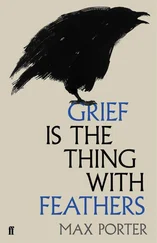When Will left Bellevue that evening it was to go to Number 15 East Thirty-eighth Street, Tennie’s new address since earlier in the year. Mrs. Woodhull had rented a mansion with some of the new fortune she’d gathered in the stock market. As he walked he checked intermittently over his shoulder, still afraid the cholera boy might appear. The boy was never there when he looked, but other spirits followed, Jolly and Sam and the rest, stretched out behind him in a line. He went twice about a streetlamp, hopped over garbage on the sidewalk, crouched low to duck under a horse who blocked his way as he crossed the street, and every spirit walked, hopped, and ducked precisely as he did, as if he blazed the only trail they could take in the world.
As he turned off of Fifth Avenue he could see Tennie, sitting in her window as if she were still living in Great Jones Street. “Darling!” she called out as the spirits filed up behind him, “I’ve been waiting for you!”
Will’s machines were always loosely adjusted and ill-controlled. He fixed Gob’s aeolipile, but when he fired it up it wobbled as it spun, and instead of making a clean whistling hiss it screamed like a lovelorn cat. Still, he continued to learn and to build. Gob mostly praised his efforts, though he could be harsh: of an arc lamp that Will assembled from two pieces of charcoal and a powerful voltaic battery, Gob said dismissively, “It makes more heat than light.”
Gob’s machine, meanwhile, was looking more and more like a person. They’d undone the thing it was before, removing the concretions of years until they uncovered something that looked like an iron-and-glass lamb, and then they undid that, too, because Gob declared it simply wrong, an immature form suited to a lesser task than abolishing death. Now it had glass ribs and a pair of round copper hips. It stood on legs as skinny as a bird’s, made of steel and wrapped around tightly with copper and gold wire. All the bones Gob had brought from a trip to Washington were carved into gears, or fused into struts. Inside the glass ribs was a second set of bone ribs, made from leg bones and neck bones and pieces of shattered pelvis. When they worked, Gob wore a black hat, fetched on the same Washington trip. He claimed it had belonged once to Abraham Lincoln, and said that he felt inspired when he put it on.
The variety of surfaces, the little glass boxes filled with tiny gears of gold and platinum and iron and steel, the looping wires and cables that spread out like wings behind it, the umbrella of picture negatives that sheltered it from the glare of the gaselier — these all made the machine fascinating to look at, but they did not make it functional. “It’s not finished,” Gob said once as they worked, when Will raised the issue of failure. “But it will be finished. My friend, you are impatient like the dead. I am never glad I cannot see them or hear them, but I know they must carp like fishwives, clamoring for the work to be done, and for the walls to fall. But we go as we must, and no other way. You are with me, and Walt is with me, and we will not fail.”
“The Kosmos,” Will said, looking at the machine and wondering what Mr. Whitman’s place in it might possibly be. Would he hold a cable in his hand and pass his vital energy along to waken the thing? Would he read his ridiculous poetry at it, and rouse it into a fury at the corruption of verse? He imagined the machine raising its arms to smash the man.
“Yes,” Gob said, with a dreamy look on his face. “The Kosmos.” Will turned his attention to the splicing of wire. It was something he enjoyed, weaving together the metal, strand to strand. Of the Washington booty, he liked best the piece from the Atlantic Cable. He thought it both pretty and perfect: the seven copper wires that formed the actual conductor, the insulating wrappings of thread soaked in pitch and tallow, the layers of gutta-percha, and finally the surrounding, protective coat of hard mail made from twisted steel wire. Once, before they’d worked it into the machine, he had held one end while Sam put his hand around the other, but Will had felt nothing and heard nothing.
“You’ll fail,” was what the angel said, during her rare and brief visits. And she repeated her question: “Why do you participate in abomination?” He had gathered, eventually, that by “abomination” she did not mean his dalliances on Greene Street. She meant the machine. “Do you think God is against our work?” he’d asked Gob after one of her visits. “He is indifferent,” was the reply. When Will told about the angel, he thought Gob might laugh at him and say that though spirits walked all around us on the earth, there was never any such thing as an angel. But Gob had only nodded and said, as if it were the most ordinary and sensible of statements, “Oh yes. The angels— they’re very much against us.”
“What do you know of angels?” Will asked Tennie. They were in her room on a hot night in July, nestled in what she called her Turkish corner. She had a bed fit for a princess, but sometimes she preferred to sleep here, where she’d hung a silk tent from the ceiling. Inside, she spread soft carpets and brocade pillows on the floor. She set two scimitars on the wall, bejungled the interior with rubber plants and ferns, and flanked the entrance to the tent with two squat plaster pillars, upon which two oil lamps burned and smoked.
“I saw them when I was small,” Tennie said, “but never since.” She’d reached her hand into a fern and was lazily waving its leaves back and forth, generating a little breeze. “Vicky saw one, once. I was just a year old, and almost died from diphtheria. Vicky saw an angel come down and wrap me in its wings.”
“Trying to smother you? Were they horrible wings?”
“Certainly not. It was a healing touch. I was restored by it. Everyone but Vicky had given me up for dead.” She reached for a glass of water and took a drink. “I saw Mr. Nathan,” she said. “Have you seen him? He doesn’t look happy. I think he wants justice for his murder. You know, I don’t think I’d care much what happened to my killer, after the fact. I think my concerns would be less mundane.” She took another drink of water. Will put his hand high on her belly, just under her ribs, imagining, as he sometimes did, that he could see through her skin to watch the functioning of her organs, and see her stomach writhing in appreciation at the cool drink. She talked about her day. He wasn’t ever sure what exactly she did with her time, but he knew she was always busy with brokerage business or paper business. In her room she had a little desk where she composed articles for the paper she and her sister had launched in May. Once, when she was writing, he asked her, somewhat peevishly, if she was exposing Mr. Challis. “Mr. Who?” she replied.
He put his hands all over her, feeling her liver as it slipped past his hand when she breathed in deeply, and calling out, as he touched them, “Lungs, kidneys, spleen.”
Tennie laughed, saying her spleen was here and not there , moving his hand. She claimed to be intimately familiar with her inner workings. It was part of her talent as a medical clairvoyant and a magnetic healer, to know her own body so well. “Yes, yes,” she said, “put your hands on me, and I will put mine on you.” She reached up to his chest and his back, as if trying to capture his heart between her hands.
“The telegraph, too, has a body and a soul,” Gob said. Will was making Daniell batteries, pouring an acidulated solution of copper sulfate into a copper cell and putting a porous cup inside it. Inside the cup went a cylinder of zinc, surrounded by a weak acid. The whole thing was enclosed within a glass jar. The assembly was delicate and laborious, and he’d burned holes through half his shirts, being careless with the acid. But Will liked the work. He thought the batteries were elegant, with their cups within cups within cups. He could spend whole days making them, and he often did, so they had hundreds by the end of summer.
Читать дальше












